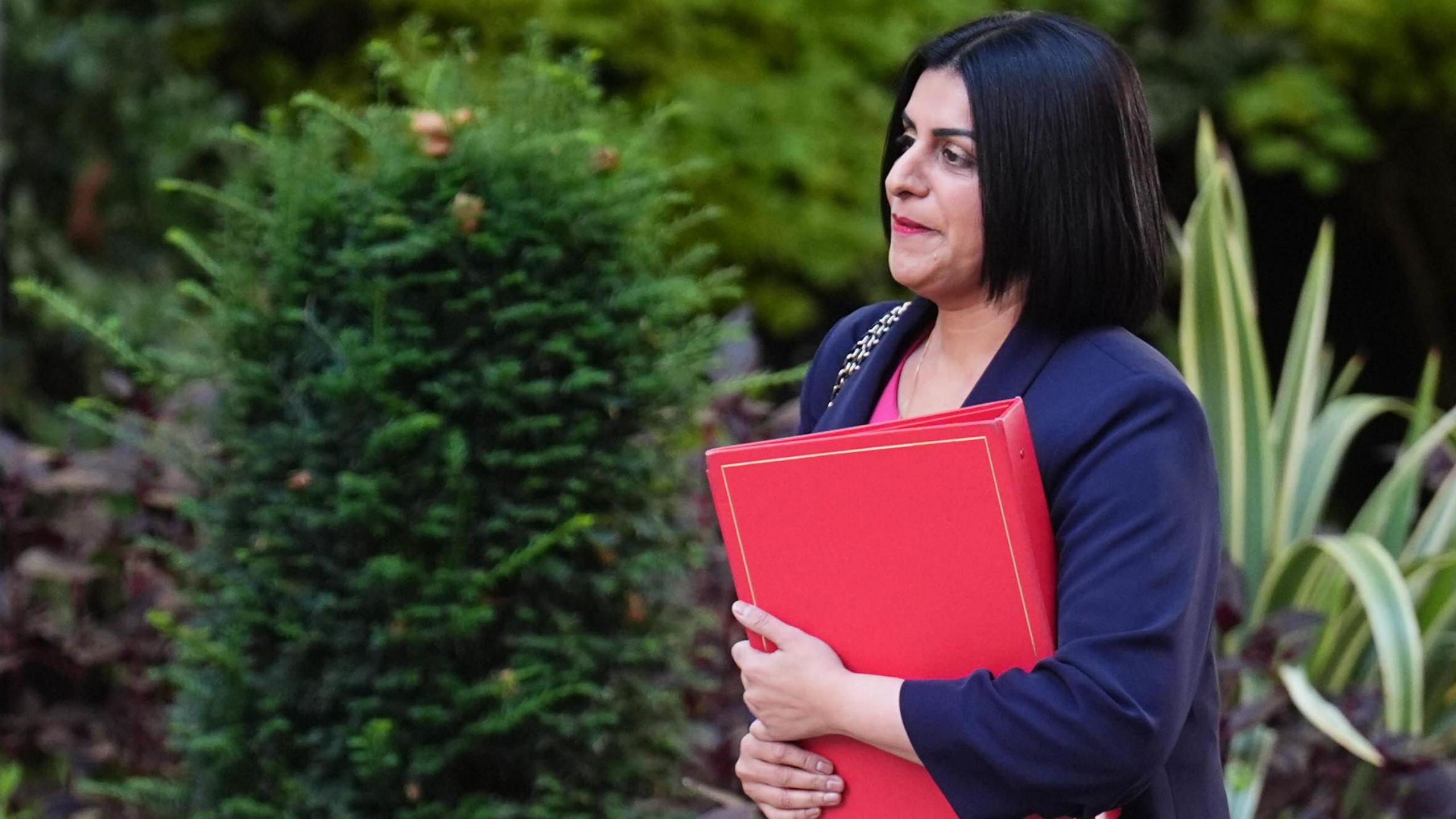Government to appeal against ruling blocking migrant deportation to France

- Published
The government is lodging an appeal later against a court ruling which blocked a migrant being returned to France under a "one in, one out" migrant deal between the UK and France.
Home Secretary Shabana Mahmood vowed to fight "vexatious, last-minute claims" after the deportation of an Eritrean man was temporarily blocked by the High Court this week.
The man, who arrived in the UK by small boat last month, argued he was a victim of modern slavery just hours before his flight was due to take off.
The Home Office, which will launch the appeal on Thursday, is also reviewing the Modern Slavery Act to ensure it is not being misused - something the anti-slavery watchdog says there is no evidence of.
Mahmood said following the decision that "last minute attempts to frustrate a removal are intolerable".
She added: "Migrants suddenly deciding that they are a modern slave on the eve of their removal, having never made such a claim before, make a mockery of our laws and this country's generosity."
Home Office lawyers argued that the man could have claimed asylum in France. They added that delaying his departure could encourage others allocated to the return flights this week to make similar claims and would undermine the public interest in deterring deadly small boat crossings.
But the UK's independent anti-slavery commissioner told BBC Radio 4's Today programme that she was "deeply concerned" about the home secretary's words.
Eleanor Lyons said that suggesting the system was being abused created a "tool for traffickers to use with those victims that they are exploiting".
She said that both the House of Commons and the House of Lords select committees had looked at the issue in recent years and had found no misuse of the system, adding: "It puts vulnerable lives at risk when the Home Secretary is claiming that is the case."
She also contested the government's assertion that the man could have claimed asylum on slavery grounds in France, noting that individuals must be referred by the emergency services in the UK and could not self-identify as a victim.
Is the UK-France migrants returns deal workable?
- Published17 September
Migrant return flights to France set to start next week
- Published13 September
How many people cross the Channel in small boats?
- Published22 October
In the first High Court challenge to the "one in, one out" scheme, the Eritrean man's lawyers argued he needed more time to present evidence that he may have been the victim of modern-day slavery - and that the decision to remove him had been rushed.
The injunction raises questions about whether other migrants designated for deportation through the scheme could use similar grounds to delay or block their removal.
A policy of deporting migrants to Rwanda put forward by the Conservatives under the last government became bogged down in repeated legal challenges before being cancelled by Prime Minister Sir Keir Starmer when he came into office.
The deal with France was seen by the previous Home Secretary Yvette Cooper as one of her landmark policy achievements. It is now the job of her successor to make it work.
Ministers agreed the "one in, one out" pilot deal with France in July to curb record small boat crossings this year.
Under the deal, the UK will send asylum seekers who have crossed the Channel back to France, in exchange for those who apply and are approved to come to Britain.
France has reportedly said it will only accept a small initial contingent of deportations, while the UK has said it hopes to increase numbers over the course of the scheme.
The latest setback follows reports that the first flights to France left empty on Monday and Tuesday.
Despite this, the first removals of migrants to France under the pilot scheme are still expected to go ahead this week.

Sign up for our Politics Essential newsletter to keep up with the inner workings of Westminster and beyond.